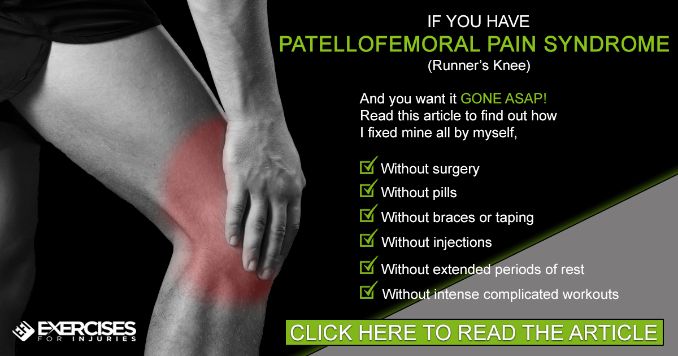
It doesn’t matter if you’re a professional athlete, on-the-go worker or older adult ― knee pain is one of the most common health complaints of all. In some cases, you might consider arthroscopic surgery for knee pain. But when is it worth it? The answer might surprise you. Let’s find out more.
What Is Arthroscopic Knee Surgery?
Parts of the word “arthroscopic” help reveal its meaning. Arthro means “joint,” and scopic means “to look.” So arthroscopic surgery is an operation that involves looking into the joint. In the old days, a big open incision was required to see inside the knee. With modern technology, however, tiny cuts can be made in the skin and thin devices inserted to explore the knee joint. At the end of one of these devices is a fiberoptic camera. This allows the orthopedic surgeon to look inside and operate with tiny instruments on your knee. When does arthroscopic knee surgery help is a question often considered in cases of knee issues.
What Are the Advantages of Arthroscopic Knee Surgery?
The advantages of arthroscopic surgery are less scarring and shorter recovery times compared to open surgery. It also provides for better outcomes since surrounding tissue does not have to be disrupted to get inside your knee joint. Faster healing is of particular interest to the professional or competitive athlete.
What Knee Conditions Are Treated With Arthroscopic Surgery?
Not all knee problems can be treated with arthroscopic surgery, and there is heated debate among doctors about this. According to the American Academy of Orthopaedic Surgeons, indications for knee arthroscopy are:
- Removal or repair of a torn meniscus (cartilage cushion in the knee)
- Reconstruction of a torn anterior cruciate ligament
- Removal of inflamed synovial tissue (lining of knee joint)
- Trimming of damaged articular cartilage
- Removal of loose fragments of bone or cartilage
- Treatment of patella (kneecap) problems
- Knee sepsis (infection)
Why Is There a Debate Surrounding Knee Arthroscopic Surgery?
The problem with knee pain is that it’s all too common. Treatment can be frustrating, and both patients and doctors might feel compelled to do something. For example, let’s say you have nagging knee pain that’s been going on for months. You’ve tried medications, physical therapy and other treatments, but nothing seems to relieve the pain. At this point, you and your doctor face a dilemma: should you have surgery, and when does arthroscopic knee surgery help?
The debate revolves around a large body of medical evidence showing that arthroscopic knee surgery does not provide any statistical benefit for osteoarthritis. This argument has been raging for a decade. Still, many surgeons continue to recommend the procedure. Although there might be some unscrupulous doctors looking only for a cash benefit, the frustrating scenario described above ― not getting better with treatment ― is probably more common.
Why Doesn’t Surgery Help Arthritis?
Arthritis is a complex problem that typically develops gradually over time. It’s a condition that affects millions of people worldwide. More specifically, osteoarthritis occurs when the protective cartilage cushion in your knee joint wears down. This can lead to bone rubbing on bone. It’s not always clear what causes osteoarthritis, but research suggests that it might be related to the following factors:
- Genetics: You might be more likely to develop osteoarthritis due to hereditary causes. This could be related to collagen production, bone alignment or even pain tolerance.
- Being overweight: Excess body weight puts more strain on the knee joint, which may cause the cartilage to wear down faster. Plus, extra fatty tissue may lead to increased inflammatory chemicals that can damage joints.
- Injury: Any kind of trauma to a joint ― fracture, sprain, dislocation, surgery, tear, and so on ― can increase your risk for developing osteoarthritis. Also, extended overuse of the knee is a risk factor.
Now let’s say you’ve been diagnosed with osteoarthritis. During your evaluation, your doctor orders a magnetic resonance imaging (MRI) scan. The scan shows some torn cartilage. Is this the cause of your pain? Unfortunately, there’s no way for you or your doctor to be sure. If you undergo surgery to fix or trim the torn cartilage, you may not see any improvement in your symptoms. Plus, every surgery exposes you to risk. If the benefit is questionable, the risk might not be worth it.
What About Sports-related Knee Injuries?
When it comes to athletic injuries, the scenario is a bit more clear. For instance, let’s say you’re a competitive athlete with no history of knee problems. Then one day you pivot hard and blow out your knee. The surgeon orders an MRI and a torn meniscus or torn ligament shows up. In this case, the cause of your pain is much more obvious. Therefore, a positive response to surgery is much more likely.
In one study, a review of 62 meniscal repair surgeries revealed that early repair within three months of injury had improved results vs. late repair ― 91% vs. 58% success rate. Also, traumatic tears had a better response to surgery than chronic tears ― 73% vs 42%. Here, again, we can see how a chronic condition detected on MRI scan might not be the only cause of pain. Surgery to correct a chronic meniscal tear might not solve the pain problem.
Bottom Line, Should I Have Knee Arthroscopic Surgery or Not?
If your knee pain is chronic and due to osteoarthritis, the current research does not appear to support surgery, particularly when does arthroscopic knee surgery help. If you’ve had an injury, then surgery might be worth it. It’s important to see that these two scenarios are very different. So, if you have osteoarthritis, make sure you consider wisely before undergoing surgery ― even if your MRI shows something “fixable.”
If you’ve had a recent knee injury, however, surgery is not indicated 100 percent of the time either. Part of it depends on the severity of the injury and your level of activity. For professional athletes, surgery might be the only way to keep them competitive, but they might have worse problems down the road. For the weekend warrior, other treatments might be better to minimize your overall health risk.
Remember, any type of knee damage increases your chances of developing arthritis in the knee. Even if you have a surgery that corrects an injury, you could end up with osteoarthritis in that knee in the future.
Other Treatment Options for Knee Pain
Besides surgery, there are numerous treatment options for knee pain due to osteoarthritis. Treatment may include:
- Pain medications: The most common pain relievers are acetaminophen and nonsteroidal anti-inflammatory drugs (NSAIDs) like ibuprofen and naproxen. Chronic NSAID use, however, can increase your chance of developing stomach ulcers.
- Antidepressants: Some medications in this class are used to treat chronic pain. Duloxetine (Cymbalta) has been approved by the United States Food and Drug Administration (FDA) for treating arthritis pain.
- Physical therapy: A professional therapist guides you with special exercises and treatments. The goal is to increase muscle strength around the knee, improve flexibility and increase range of motion.
- Steroid injections: Shots of cortisone into the knee joint decrease inflammation and relieve pain. However, shots are limited to three to four per year, and they may lead to more knee damage in the long run.
- Hyaluronic acid injections: This is a substance similar to the natural fluid found in your knee. An injection may help improve cushioning in your knee, but research supporting this practice is inconclusive.
- Bone realignment surgery: If, for some reason, one side of your knee is more severely affected, osteotomy surgery may help.
- Joint replacement: This is a major surgery when other treatments fail, and the pain is severe.
Alternative Medicine Treatments for Osteoarthritis Knee Pain
Other nonmainstream treatments have been used to treat knee pain. The evidence behind their use may not be conclusive, but the risk associated with these treatments is relatively low:
- Glucosamine and chondroitin: Study results have been mixed on these nutritional supplements. Don’t take glucosamine if you have a shellfish allergy. Glucosamine and chondroitin may interfere with blood thinners like warfarin or Coumadin and lead to bleeding problems.
- Avocado-soybean mix (unsaponifiables): This nutritional supplement is commonly used in Europe to treat knee and hip osteoarthritis. The anti-inflammatory properties are believed to be beneficial.
- Acupuncture: Some research shows that acupuncture may relieve pain and improve function for those with knee osteoarthritis. Acupuncture uses ultrathin needles inserted into your skin over specific parts of your body.
Conclusion
The causes of knee pain are numerous, including many not mentioned in this article. Even though research does not show an overall benefit in when does arthroscopic knee surgery help for osteoarthritis, each case is different. Make sure your doctor understands your needs and expectations when determining if arthroscopic knee surgery is the right course of action. Plus, don’t hesitate to get a second opinion. While it’s important to consult with a doctor, do your own research before deciding upon treatment ― especially surgery.
If you are looking for a fast, simple, safe and effective program to eliminate your stubborn knee pain and patellofemoral syndrome, then check out the Patellofemoral Syndrome Solution program here, here!




